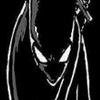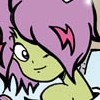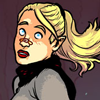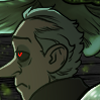Blog Archives
Neal Stephenson vs. xkcd

The sci-fi author Neal Stephenson was recently interviewed by the AV Club. Interestingly, one of the questions asked was what he thought of a certain criticism directed at him from Randall Monroe’s xkcd:
AVC: Speaking of made-up words, did you see the xkcd strip about the book, or any of the subsequent discussions online?
NS: I saw the strip, but not the discussions. Note that the dependent variable in the graph is “probability that the book will be good” and not “quality of book,” which means that I still have some statistical chance of writing a good book even if it’s full of neologisms.
I’m alternately baffled and intrigued by all of the attention that has been paid to the made-up words in Anathem, since it seems to me that it doesn’t have a hell of a lot more such words than most other fantasy and science-fiction books. To me, it’s always been a normal part of reading F/SF that one encounters unfamiliar words and learns their meaning as the book goes on. Every kid in the world knows the meanings of “horcrux,” “wizengamot,” etc. Right now I’m reading Stephen King’s Dark Tower series, which is stuffed with made-up words. So when I see discussion of neologisms in Anathem, I find myself considering a couple of hypotheses:
1) Maybe Anathem is being read by a lot of people who are not in the habit of reading fantasy and science fiction and who simply aren’t accustomed to encountering neologisms in literature.
2) Maybe it’s just another example of shortened attention spans. People don’t have time to read. This is not me criticizing others—I’m exhibit A of someone who doesn’t have time to read! Only reluctantly do they pick up a book as fat as Anathem. When they find it has new words in it, they get even more impatient.
But those are just guesses. For me, it is still something of a mystery as to why people are so preoccupied with this. Maybe I’m just underestimating the difficulty of figuring these things out from context. My own tastes run toward the “just let me figure it out” end of the spectrum. The alternative is big chunks of naked exposition.
Popular authors being asked about what they thought of a webcomic? Whether you love or hate Randall Monroe, you got to admit this is one hell of an achievement (from both the standpoint of both a critic and a webcomic observer).
Incidentally, the subject of made-up words is going to be addressed in the next Webcomic Overlook review. I’ll let you ponder for a few minutes to guess which webcomic I’ll be reviewing next.











































































































